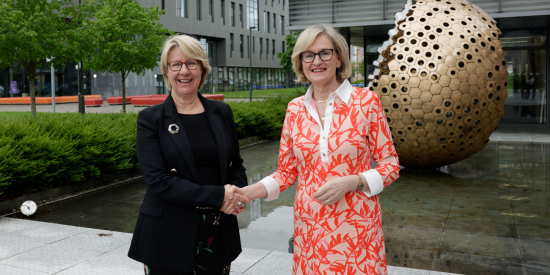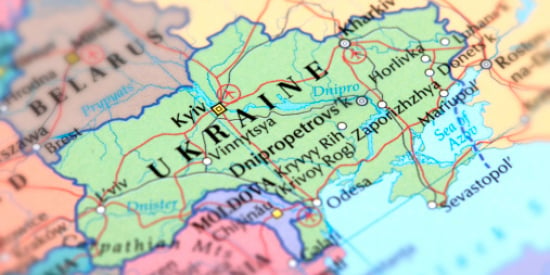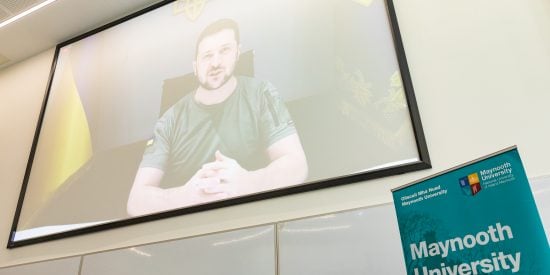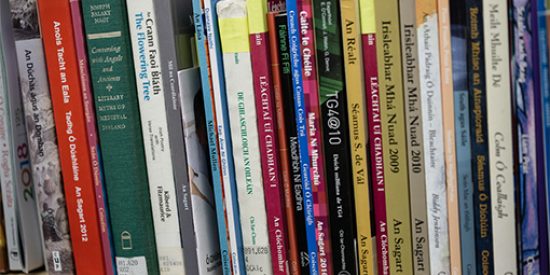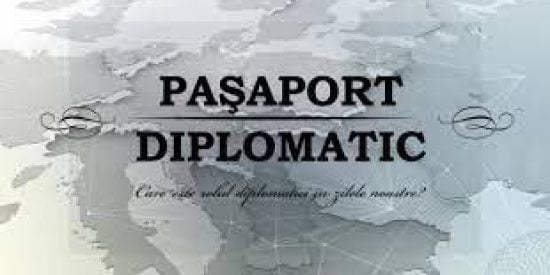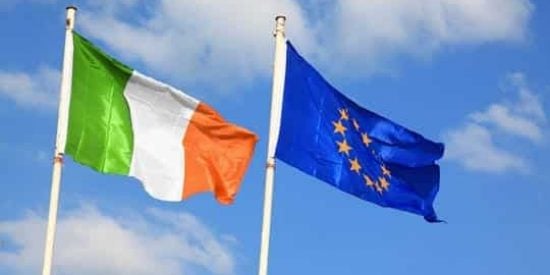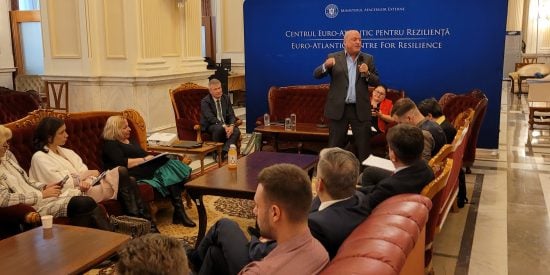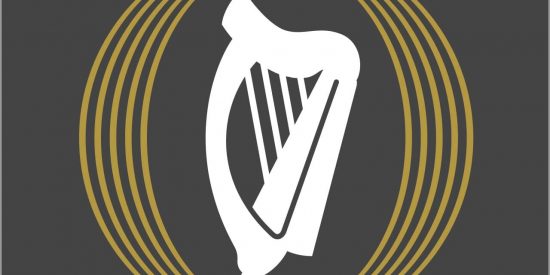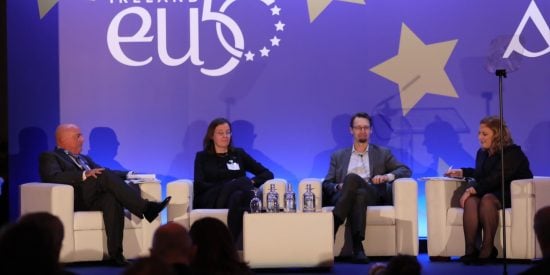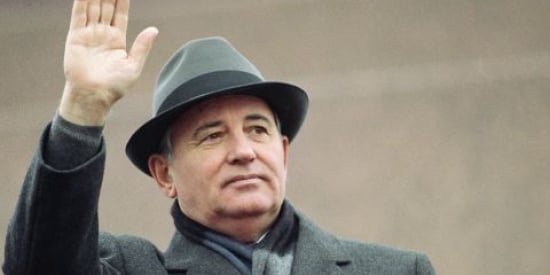The need to secure some kind of “special status” for Northern Ireland in the Article 50 Brexit negotiations was an argument underscored by Maynooth University Professor John O’Brennan today. Professor O’Brennan was speaking at a special All-Island Civic Dialogue on Human Rights under the Good Friday Agreement, convened by Minister for Foreign Affairs Charles Flanagan TD and hosted by Maynooth University.
The protection for reciprocal rights for Irish and British citizens in both jurisdictions is critical to the functionality of the Good Friday Agreement, Professor O’Brennan said. The protection fostered by the Agreement impacts a large range of issues from pension provisions and child benefit rights to cross-border policing and security cooperation. He said a “Hard Brexit” scenario that does not take into account the unique status of Northern Ireland, particularly when it comes to human rights, would completely undermine the intent of the Agreement.
“One of the key questions pertaining to our discussions today is whether we can maintain the long standing reciprocal rights for Irish citizens in our respective jurisdictions. The Brexit negotiations need to protect the access to services for all citizens,” Professor O’Brennan said.
“It is also crucial that we maintain some role for the European Union in the peace process. It is undoubtedly the case that our common membership of the European Union over more than four decades allowed British and Irish officials to meet regularly on the margins of EU meetings, to develop both trust in and greater understanding of each other, and ultimately to cooperate more closely than ever before.”
The Maynooth University event included participation by approximately 100 representatives from civil society organisations and relevant stakeholders from across the island of Ireland.
Speaking ahead of the event, Minister Flanagan said, “As a co-guarantor of the Good Friday Agreement, the Government takes with the utmost seriousness our duty to ensure that all provisions of the Agreement are upheld and secured throughout the process of the UK’s exit from the European Union. This sectoral dialogue is an extremely valuable opportunity to hear directly from experts and practitioners on how Brexit might impact Human Rights under the Good Friday Agreement and how we might respond.”
“The Good Friday Agreement is a shared framework to uphold and to utilise as we work together to manage the implications of Brexit,” added Minister Flanagan.
In opening the conference, Professor Philip Nolan, President of Maynooth University, recognised the importance of an all-island conversation about these issues and said Maynooth University was a fitting location for such dialogue: “The University has long enjoyed a special relationship with the northern part of this island. Our distinguished alumni include John Hume, who played such an important role in the civil rights movement and the peace process. The University also is home to the Edward Kennedy Institute for Conflict Intervention, a leading resource for research and training in the areas of negotiation and peacebuilding. As a University with extensive interests in human rights and social justice, we welcome the opportunity to host such an important all-island dialogue in the hope it can provide meaningful impact on the Brexit negotiations.”
Maynooth University Centre for European and Eurasian Studies
TogglePost-Brexit “special status” for Northern Ireland key to preserving rights of Irish and British citizens
News
MU hosts historic conference on 50 years of Ireland’s EU membership
Politicians, diplomats, academics and civil society groups examine highs and lows of Ireland’s membership
Date: Thursday, 11 May 2023
Publication of numerous public writings on the Ukraine War
Members from The Centre for European and Eurasian studies have published articles relating to the Ukraine War.
Date: Tuesday, 21 February 2023
Ukranian War and associated Events in Maynooth University
Since the outbreak of Russia’s War on Ukraine on February 24, 2022, members of the Centre for European and Eurasian Studies have played a key role in contributing to the University’s response to the invasion and commenting on its implications. We have organized and taken part in numerous public events and we explained the historical and socio-political dimensions of the war to students and the larger university community.
Date: Tuesday, 21 February 2023
Sven Milekić article in Academic Journal
PhD Student Sven Milekić article published in Academic Journal "A Protest, Coup d’État, or Internal Party Power Struggle: What Motivated Croatian War Veterans to Hit the Streets?"
Date: Thursday, 02 February 2023
John O'Brennan interviewed on Romanian TV during recent visit to Bucharest
John O'Brennan was interviewed by Pasaport Diplomatic, on Romanian television, during his recent visit to Bucharest. He spoke about Ukraine's relationship with the European Union and what role the EU might have in the Western Balkans in the years to come.
Date: Thursday, 12 January 2023
John O'Brennan media appearances on Ireland's fiftieth anniversary of EU membership
Professor John O' Brennan engaged with a number of media outlets over the Christmas and New Year period.
Date: Tuesday, 10 January 2023
John O'Brennan recent keynote lectures on Ireland and Europe
Professor John O'Brennan delivered a number of keynote lectures in the latter part of 2022, focusing on Ireland's experience of EU membership.
Date: Monday, 09 January 2023
John O'Brennan addresses the Oireachtas Joint Committee on European Affairs
On Wednesday, 7 December 2022 John O'Brennan addressed the Oireachtas Joint Committee on European Affairs on the theme of recruitment of Irish nationals to the EU institutions and how Ireland might better 'communicate Europe' to the Irish people.
Date: Monday, 09 January 2023
"Ireland and the EU at 50"
Professor John O'Brennan addressed the 'Ireland and the EU at 50' conference on 27th October in Dublin.
Date: Monday, 07 November 2022
John O'Brennan on Today with Claire Byrne - death of Mikhail Gorbachev
John O Brennan spoke to Claire Byrne on "Today with Claire Byrne" about the death of Mikhail Gorbachev and how he impacted on Europe.
Date: Monday, 12 September 2022

